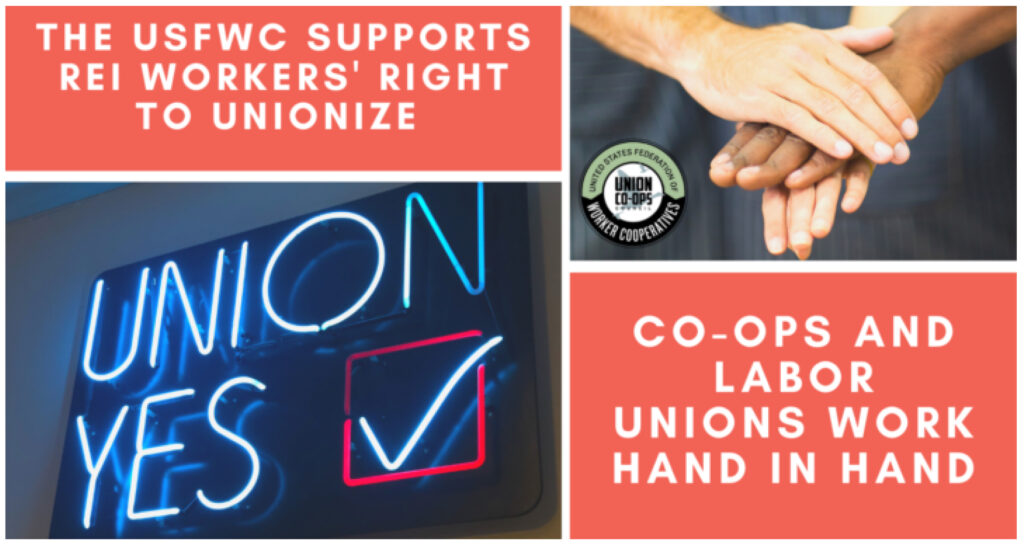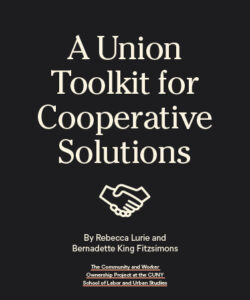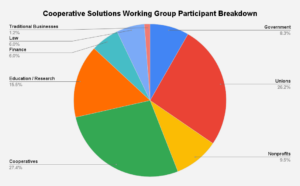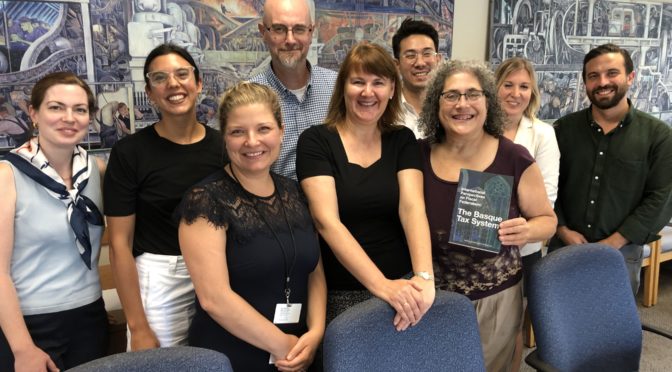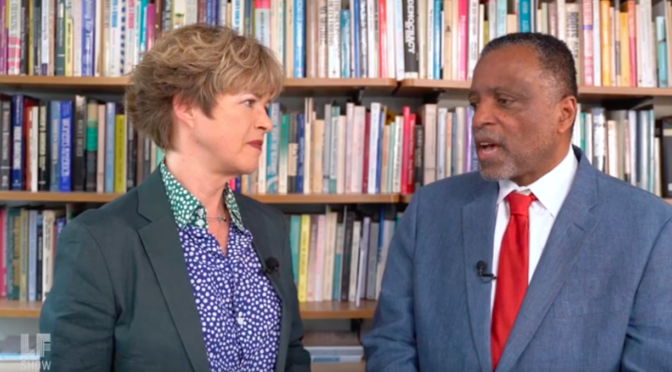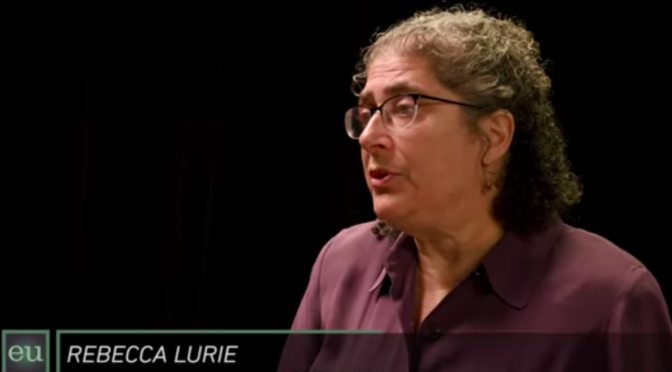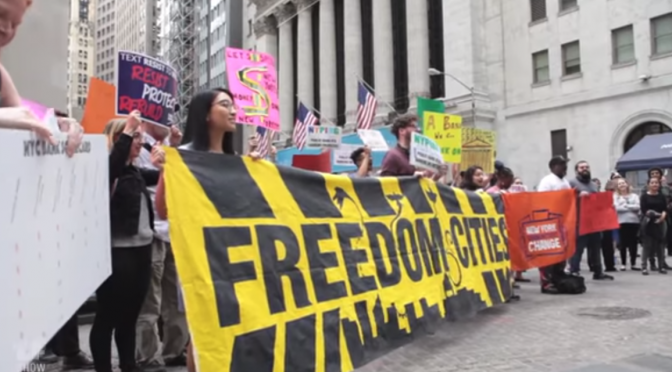The Community and Worker Ownership Project stands with workers and their chosen representation to exercise their power at work. We need unions to help us be the best we can be as business pressures can otherwise push workers’ safety and dignity to the margins. Unions protect workers’ interests and raise the floor for workers and businesses in adjacent industries and geographies.
The Union Co-op Council of the US Federation of Worker Coops has issued this statement.
Co-Ops And Labor Unions Work Hand In Hand: USFWC Supports REI Workers’ Right To Unionize
Posted on January 25, 2022
The U.S. Federation of Worker Cooperatives celebrates the workers at the REI co-op location in New York City who have announced their intention to form a union with the Retail Wholesale and Department Store Union (RWDSU). We strongly urge REI Co-op, and all other companies who are proudly part of the cooperative movement, to embrace their workers’ right to representation in a union, and recognize that unions play a key role in a strong cooperative ecosystem.
To that end, the USFWC has dedicated time and resources to building up this relationship for more than a decade through its Union Co-ops Council, a space focused on building worker power in coordination with organized labor. As the Council noted in their statement from 2021, the cooperative movement and the trade union movement both have deep roots in liberation struggles for economic independence. Labor unions and cooperatives are not an “either/or” option of organization but work together in solidarity to achieve similar goals. Worker power and self-determination, be it through worker co-ops, labor unions, or both together, are key to the better world we hope to build.
Rather than “getting between the co-op and the members,” unions can strengthen the relationship between workers and owners in a consumer co-op. Just as the consumer members join in collective action through a consumer cooperative to have a meaningful voice in the marketplace, workers join in collective action through a labor union to have a meaningful voice in the workplace. We encourage consumer members to engage the principle of solidarity with the workers who create the value of the cooperative.
The Union Toolkit for Cooperative Solutions, developed by Union Co-ops Council member Rebecca Lurie and Bernadette King Fitzsimmons, delves into some of the incredible success stories of cooperatives and unions coming together to help workers and businesses flourish across the United States.
Whether a consumer co-op like REI or a worker co-op in our membership, unions offer accountability and stability for workers in cooperatives, with representation and voice in the broader market of the industry. Workers know what they need to live well and do their jobs well. From small shops to big name cooperatives to corporations, the USFWC proudly stands in solidarity and cooperation with workers organizing across the globe.

